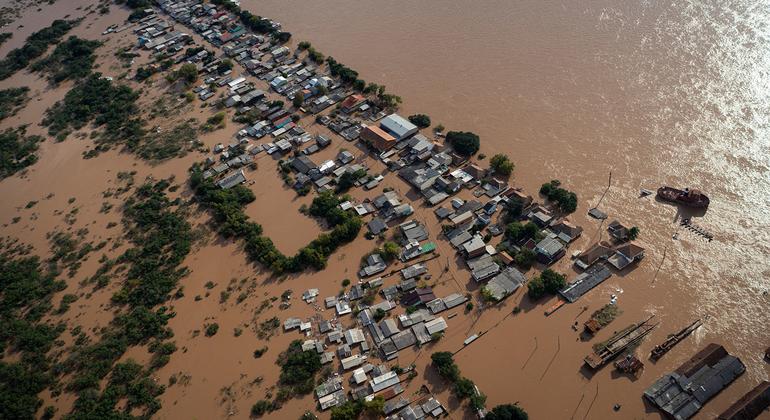A recent report by the World Meteorological Organization (WMO) has revealed the magnitude of the climate impacts that Latin America and the Caribbean have experienced in 2024, a year marked by retreating glaciers, destructive hurricanes, unprecedented wildfires, prolonged droughts, and devastating floods. These phenomena have caused significant damage to the lives of millions of people, jeopardizing food security and livelihoods in an already vulnerable region.
The report titled “The State of the Climate in Latin America and the Caribbean 2024” highlights the alarming increase in victims associated with extreme weather events. Celeste Saulo, Secretary-General of the WMO, emphasized that the effects of severe weather events were felt across the region, from the Andes to the Amazon, including crowded urban areas and coastal communities. The WMO documented that this year saw the earliest recorded Category 5 hurricane in history, as well as droughts that fueled devastating wildfires and extreme rainfall that caused historic floods.
From a positive perspective, the report highlights the significant growth of renewable energy, which now represents nearly 69% of the region’s energy matrix, with a 30% increase in solar and wind energy capacity and generation compared to the previous year. This progress underscores the increasing importance of clean energy in the adaptation and mitigation strategy against climate change.
Climate change has led to a significant increase in temperatures in the region, which in 2024 exceeded the 1991-2020 average by 0.90°C. Events such as El Niño exacerbated the situation, causing extreme droughts in key areas like the Amazon. Rivers such as the Negro and Paraguay reached critical levels, which, along with wildfires that caused over 130 deaths in Chile, highlight the urgency of improving disaster alert and response systems.
The report also shows that severe weather conditions have impacted food systems, raising food prices and increasing poverty and inequality in the region. The WMO stresses the need to implement strategies that strengthen agricultural resilience and ensure the stability of rural livelihoods, in a context where food insecurity is exacerbated by crop losses and disruptions in supply chains.
The WMO concludes that collaboration between National Meteorological and Hydrological Services and other stakeholders is essential to address these challenges and capitalize on opportunities for adapting to a changing climate.
Source: MiMub in Spanish










